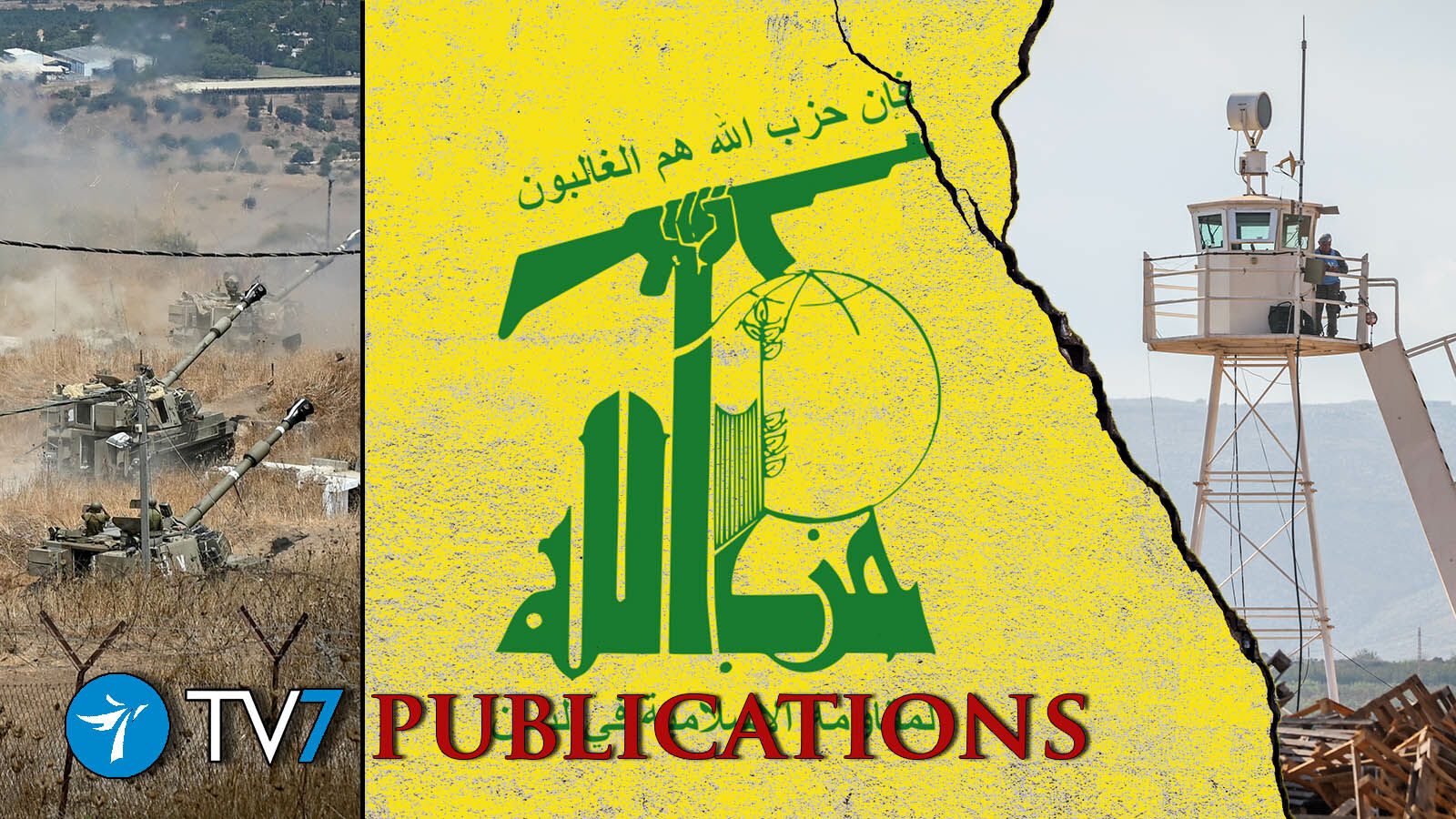If Israel is to prevent Iran from constructing nuclear weapons it must first deal with the threat from the north.
By Prof. Efraim Inbar, President of the Jerusalem Institute for Strategy and Security.
The rocket barrages fired at Israel on Passover from Lebanon are an initiative of the pro-Iranian Axis. Although Hezbollah did not take responsibility for the rockets, there is no doubt that it wants to accustom Israel to the dripping of missiles from Palestinian organizations in southern Lebanon, which will allow for space to deny and prevent an escalation that Iran is not interested in starting as it rapidly advances toward a nuclear bomb.
The firing of missiles is part of an Iranian strategy that aims to surround Israel with a circle of missile fire to make the lives of its citizens miserable. In Tehran, they think that Israel’s weakest point is the civilian front and that constant pressure will lead to the collapse of the Zionist state. The intention of the missile threat is also to deter Israel from acting against Iran’s nuclear project.
Moreover, the disputes in Israel over the legal reform have possibly eroded Israel’s deterrent power, affecting the strategic assessment of our enemies regarding Israeli determination and the timing of the latest shootings from Lebanon and Gaza.
Iran has armed Hezbollah with more than 100,000 missiles that can cover the entire territory of Israel. It is clear to everyone that someone will use the missiles in this extensive arsenal and Iran’s efforts to upgrade Hezbollah missile stockpiles are likely to be at least partially successful (just as the missile stockpile in Gaza has also grown and improved over time).
An obstacle to remove before dealing with the Iranian nuclear issue is the threat of missiles in the hands of Hezbollah, which can cause enormous damage to Israel. Unlike the situation in Gaza, the response to the magnitude of the threat from Hezbollah is not just a duel between missiles and the Israeli air defense system. All understand that dealing with the missile stockpile in Lebanon also requires large-scale ground action.
Thus, the IDF must prepare for a preventive war in the north to eliminate the missile threat to the country’s strategic facilities before dealing with the Iranian nukes. Israeli military and diplomatic activity today should be aimed at removing the missile threat from the north. That is the intermediate goal to thwart the Iranian nuclear program.
The IDF must focus on managing this challenge. An invasion of Lebanon to clear out our northern neighbor’s missiles requires careful preparations. IDF exercises in the north and the maneuvers of its forces in the mountains of Cyprus indicate the preparations for a Lebanese scenario. Former defense minister Benny Gantz also testified about this recently.
Israel, which has initiated wars in the past (1956, 1967, 1982, 2006) and many large-scale operations, knows that every war requires acquiring legitimacy from home and the international community, mainly the United States. Israel needs to build an atmosphere of understanding for an Israeli initiative in Lebanon as soon as possible.
Lebanon’s failed-state status chaos and the missile attacks from its south are an opportunity to begin understanding Israel’s need to take action. Lebanon and Hezbollah must be firmly linked to Iranian aggression in the international and Israeli consciousness. Tehran’s rapid progress toward the bomb and Iran’s growing identification as an ally of Russia fighting in Ukraine may allow more freedom of action for Israel.
Inevitably, restoring Israel’s deterrence involves using military force. Generally, maintaining deterrence requires a periodical demonstration of Israeli determination, effective use of power, and a willingness to risk absorbing casualties.
Keeping Israel’s regional position also requires a readiness to use military force against Iran’s aggressive stance. Moderate Arab countries, especially those who have signed the Abraham Accords, follow Israeli conduct closely. Without determined and effective Israeli activity, Israel’s allies in the Middle East, who fear the withdrawal of the Americans from the region and are afraid of Iranian aggression, will think that Israel is a broken reed on whom it cannot rely. That will lead them closer to Iran – Saudi Arabia already signaled such a direction when it renewed diplomatic relations with Iran.
The time for Israel to decide whether to act alone for its security is getting closer. However, the path to preventing a nuclear Iran and dangerous nuclear proliferation in the region is to first eliminate the missile threat from Lebanon.
JISS Policy Papers are published through the generosity of the Greg Rosshandler Family.
